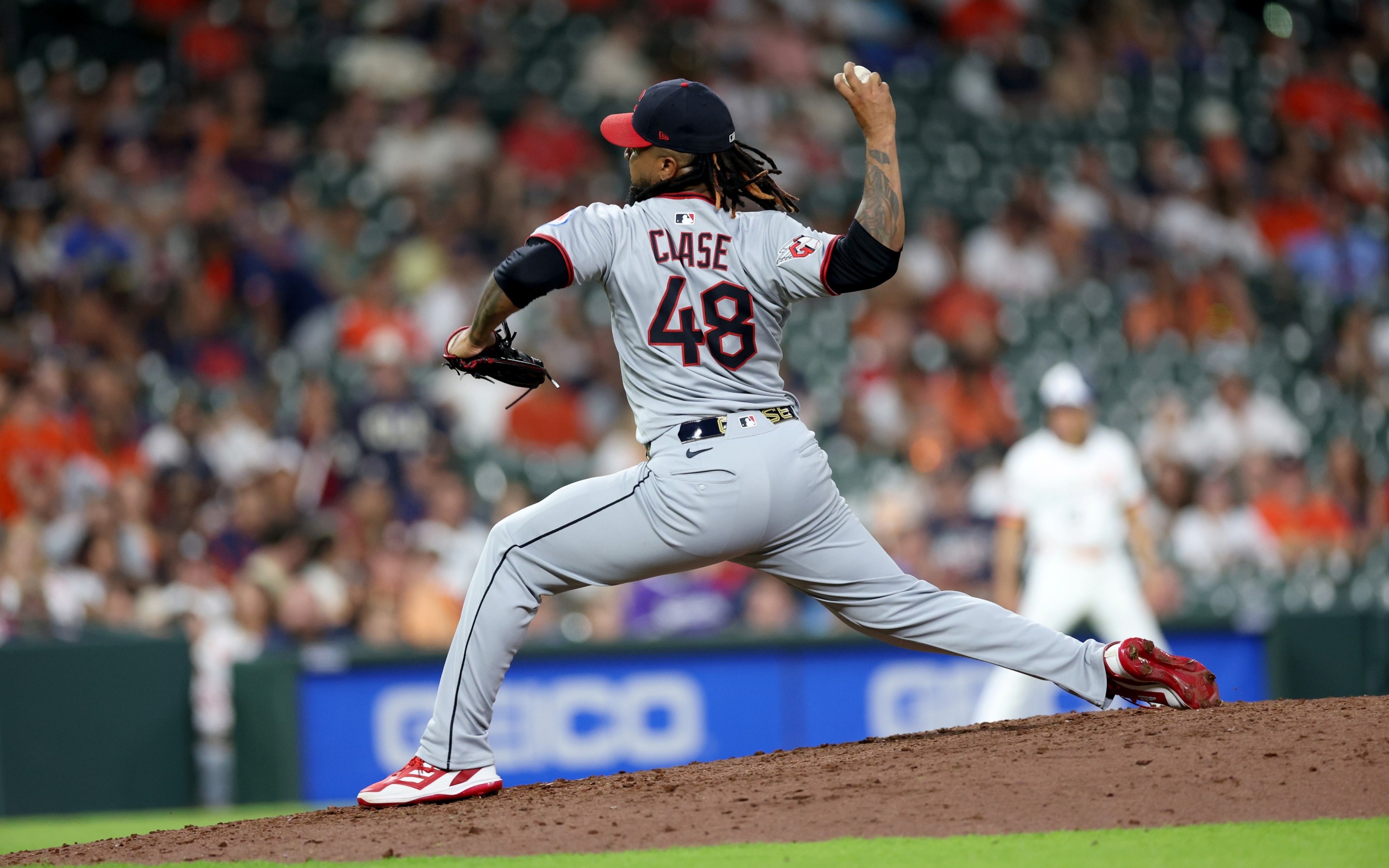On Monday, ESPN's Jeff Passan reported, and the Cleveland Guardians confirmed with an official statement, that Guardians closer Emmanuel Clase has been placed on "non-disciplinary paid leave as part of MLB's sports-betting investigation" until Aug. 31. This leave comes as part of the investigation into Clase's teammate, Luis L. Ortiz, who was placed on leave earlier in the month after a betting-integrity firm flagged abnormal betting activity on two specific pitches he threw.
Clase, an All-Star and three-time American League leader in saves, has a much higher profile than Ortiz. His name has been floating around trade talks this year; as Bob Nightengale has helpfully noted, his administrative leave means he is presumably no longer on the trade block. A note on language: While being placed on leave resembles a suspension—the player is not permitted to play—it is, in the language Passan uses, explicitly non-disciplinary before the conclusion of the investigation. This is the same language used in league investigations into domestic violence cases.
As of this writing, no further details have been made public on exactly why Clase has been placed on leave. The investigation into Ortiz came with two pitches to pick apart, but the investigation into Clase comes with the additional sleuth work of trying to reverse-engineer suspicious pitches from their advanced metrics—a slightly worse version than the Spider Tack days of staring at four-seamer spin rates. Thus, cue the speculation.
Foolish Baseball observed that in 2025, Clase has had an abnormally high rate of balls thrown far outside of the zone when throwing his first pitch of the ninth inning: 17.5 percent, compared to 5.2 percent for every other pitch. (This observation is accompanied, in Foolish Baseball's Twitter post, by an admittedly quite funny compilation of all the pitches.) Clase being a historically good pitcher doesn't help his case. In 2024, there was virtually no disparity between his first pitch and any other pitches.
But this is a clumsy, frustrating logistical attempt to work out what's happening. As the Ortiz case has shown, betting patterns, not suspicious on-field activity, are what prompt investigations. Advanced stats can be used to confirm prior opinions, but there are a plethora of reasons why they can't be used as surefire evidence. As Foolish Baseball acknowledges, seven out of 40 pitches is not a meaningful sample size; wasting a first pitch is not always a sign of suspicious activity; and there is always the age-old explanation that maybe a pitcher is just pitching poorly.
This is ultimately what is irritating and untenable as more investigations unfold into baseball. Fans have no access to sportsbooks' betting records, or integrity firm flags on suspicious pitches. What fans are left with is the product on the field, and so long as there are prop bets and players enmeshed in the infrastructure of sports betting, everything you watch can be called into question. Any pitch becomes a tell—even something as simple as a ball thrown to start an inning.






